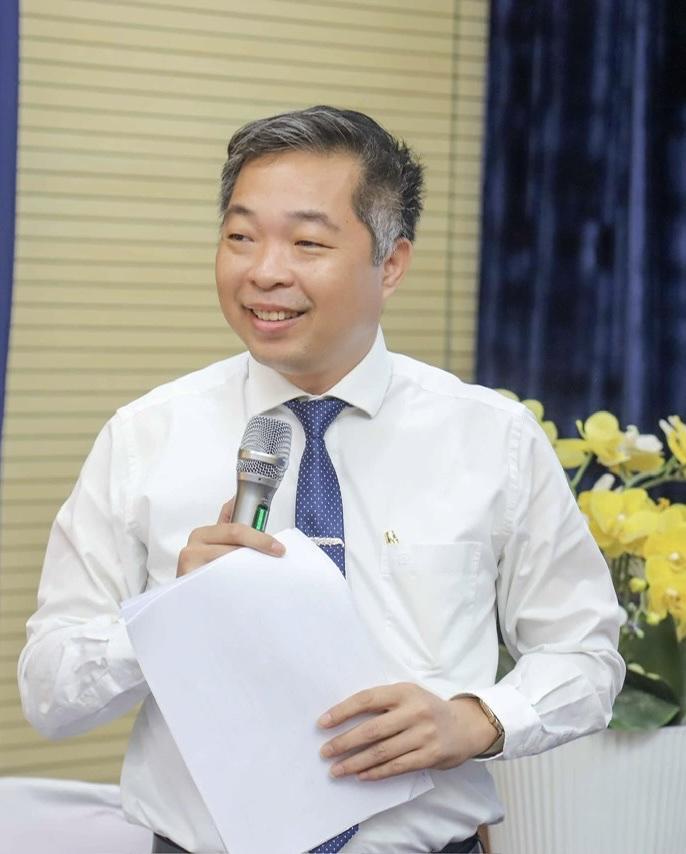
Tran Trung
Biography
Tran Trung is the Director of the Vietnam Academy for Ethnic Minorities, Hanoi, Vietnam, and a Professor at the VNU University of Education, Vietnam National University, Hanoi, Vietnam. Professor Tran Trung has published many articles in prestigious international journals in WoS, Scopus, and monograph editors of international publishers (SpringerNature, Taylor & Francis, DeGruyter). The main research areas of Professor Tran Trung are ethnic education, educational management, public policy, and teaching methods. Besides, Professor Tran Trung also participates in interdisciplinary research between education and mathematics, computer science, economics and technology, and the development of scientific research skills.
The human dimension of green transformation
While green transformation has often been framed regarding policy reform, technological innovation, and economic restructuring, it is fundamentally a cultural and social process. The success of any environmental transition depends not only on regulations and investments but also on how individuals, communities, and institutions perceive, internalize, and act upon the idea of sustainability. Culture, education, and communication constitute foundational pillars that shape collective behavior, values, and social norms necessary for long-term ecological change.
In the Anthropocene, where human activity is the dominant force shaping Earth systems, shifting toward a green future requires more than top-down governance - it demands a profound reconfiguration of mindsets, identities, and social imaginaries. This entails embedding sustainability into the core of everyday life through cultural narratives, learning systems, and communicative practices that empower people to participate meaningfully in green transformation.
Culture as a catalyst for ecological values
Culture is not merely a background variable; it actively mediates how societies relate to nature, structure economic activity, and define what constitutes a good life. Cultural values influence consumption patterns, land-use decisions, and environmental ethics. Indigenous knowledge systems, traditional ecological practices, and localized worldviews offer alternative pathways to resilience and sustainability.
Promoting a green culture means nurturing values such as stewardship, moderation, solidarity, and intergenerational responsibility. It also involves reimagining symbols, rituals, art, architecture, and heritage to reflect the urgency of climate action and ecological restoration. Green culture thus becomes a living foundation for social mobilization and environmental citizenship.
Education as an enabler of transformative change
Education plays a central role in cultivating environmental literacy, critical thinking, and adaptive skills for sustainability. From early childhood to lifelong learning, formal and informal education systems can:
- Foster understanding of ecological interdependence.
- Equip learners with competencies for green jobs and circular economies.
- Encourage participation in civic processes and policy dialogues.
- Support innovation, experimentation, and problem-solving across disciplines.
Global frameworks such as the UNESCO Education for Sustainable Development (ESD) initiative and the Greening Education Partnership emphasize the need to green curricula, teacher training, school environments, and entire educational systems. Education must shift from transmissive models to transformative pedagogies that engage learners emotionally, ethically, and practically in the sustainability agenda.
Communication as a bridge between knowledge and action
In the age of information overload and polarized discourse, environmental communication is a vital interface between science, policy, and the public. Effective communication strategies are needed to:
- Translate complex environmental data into accessible narratives.
- Counter misinformation and foster trust in scientific knowledge.
- Engage diverse audiences through multimedia, storytelling, and social platforms.
- Build coalitions, mobilize communities, and sustain collective action.
Communication is about delivering information and shaping public imagination, affective responses, and social legitimacy around green transformation. It empowers citizens to move from passive awareness to proactive participation.
The Vietnamese context: Foundations and frontiers
Vietnam has strongly committed to climate action, green growth, and sustainability education. The National Strategy on Environmental Education and Communication (2022-2030) highlights integrating green values into formal curricula, community learning centers, and mass media. Cultural institutions, religious networks, and youth organizations are increasingly active in environmental advocacy.
However, challenges remain:
- Fragmentation between education, culture, and communication sectors.
- Limited inclusion of indigenous and rural voices in sustainability discourse.
- Low engagement with new media and digital storytelling in environmental education.
- Inadequate capacity building for educators, journalists, and communicators.
Strengthening these sectors requires holistic, participatory, and context-sensitive approaches that bridge disciplines and empower communities.
Objectives of the Session
The “Culture, Education, and Communication on Green Transformation” session of the Green Transformation 2024 international conference seeks to:
- Analyze the roles of cultural identity, heritage, and values in shaping sustainable behavior.
- Share best practices in environmental education across formal and informal settings.
- Explore innovations in climate communication, green media, and social campaigning.
- Identify pathways for integrating green thinking into arts, education policy, and community development.
- Build cross-sectoral partnerships for transformative environmental learning and engagement.
This session recognizes that green transformation is as much about changing hearts and minds as it is about systems and structures.
Toward a culturally rooted, educated, and engaged green society
In sum, fostering a green transformation demands more than technological shifts-it calls for a deep cultural awakening, educational renewal, and communicative empowerment. By placing culture, education, and communication at the center of the sustainability transition, we can cultivate a society that understands the challenges and embraces the responsibilities and possibilities of living within planetary boundaries.
This session contributes to rethinking green transformation as a human-centered, value-driven, and socially embedded process, essential for achieving long-term resilience, justice, and planetary well-being.


